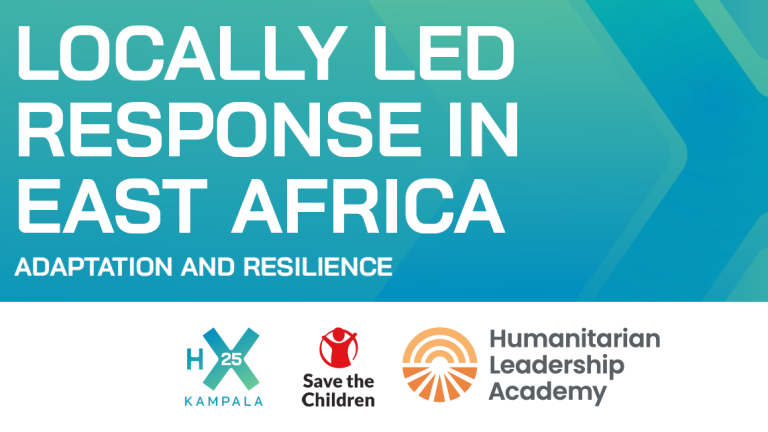On 5-9 August, in partnership with Save the Children International Türkiye Country Office, we organised Education in Emergencies (EiE) Fundamentals training in Istanbul. 21 practitioners representing local and international NGOs took part in the training. EiE Fundamentals training aimed to equip local educators with the necessary skills and knowledge to provide sustainable and effective educational support for displaced populations. It was also aligned with the priorities identified by UNICEF Education Cluster Coordinator to meet the needs on the ground.
Ayse Kapukaya, Education Officer at UNICEF, shares:
– The participants have a basic understanding of Education in Emergencies (EiE), but they lack familiarity with certain essential tools, such as the problem and solution tree methodology, which they have not had the opportunity to practice. This training is valuable because it not only provides them with the necessary knowledge but also helps them understand how it applies to their work. Most of them are more involved in planning rather than the actual implementation of projects. Since no other organisation offers such specialised training, it’s crucial to build this knowledge base systematically and set standards for the field. The INEE [Inter-agency Network for Education in Emergencies] website offers resources they can use to enhance their practice.
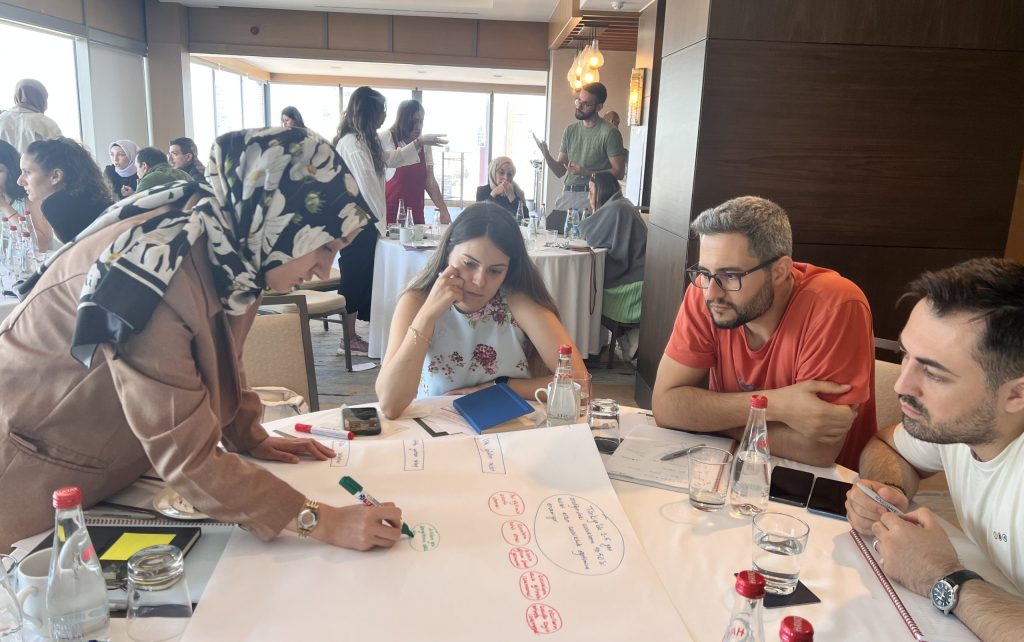
As many families displaced by the earthquake have relocated to Istanbul, creating a significant need for emergency education support in the city, it was crucial to deliver this intervention. The learning needs assessment done by UNICEF revealed that local teachers and educational practitioners need deeper understanding of the concepts and models related to education in emergencies, as well as more knowledge in mental health and psychosocial support, especially in dealing with children affected by trauma.
As schools were either damaged or shut down and the teaching process in Hatay was disturbed in 2023 due to the earthquake and unfortunate events, I am now teaching students aged 6-17 years in a programme that is designed to refresh their knowledge, fill the gaps that happened due to the disruption, and equip them with skills and knowledge required for their age. Throughout this training, I have learnt how to design a programme and curriculum as I was always on the delivery side as a teacher. It has also taught us new skills in dealing and communicating with children. I wish I have attended this program before the earthquake and would have learnt the strategies to incorporate in my teaching style and programme design directly after the event. The experience sharing, interactivity and group activities were very beneficial as we got the chance to hear from other participants about their response plans and ways of work in the education sector.
Attending the EiE fundamentals training has helped me evaluate if our response as an organisation after the earthquake was correct and identify the areas of improvement for similar cases in the future. Being a project officer who develops the implementation plans for the team, it is crucial that I have the needed skills and knowledge to assess how we can allocate the fund received to enhance the learning experience and deliver educational programmes to children and enhance the programme quality and initiatives. Both topics have been covered throughout this program. The content is very relatable to Türkiye especially the unfortunate events that took place throughout the past year and it is essential that we attend such programmes in advance of these events, when possible, for better preparedness.
This training filled the gap and gave foundational knowledge to colleagues who work in education and those who don’t work directly in education. Even the participants who didn’t have experience in the education sector now understand the foundations of EiE. The content is relatable, especially after the earthquake … in general, it helped those who don’t have the education experience understand the theory and terminology behind their work and the impact of their involvement in education in the earthquake response and understand the relationship between the different sectors and education such as MHPSS and food security and education … This training has helped me realise the importance of localisation and the community, and I will be thinking about new ways for community involvement within our programs and initiatives.
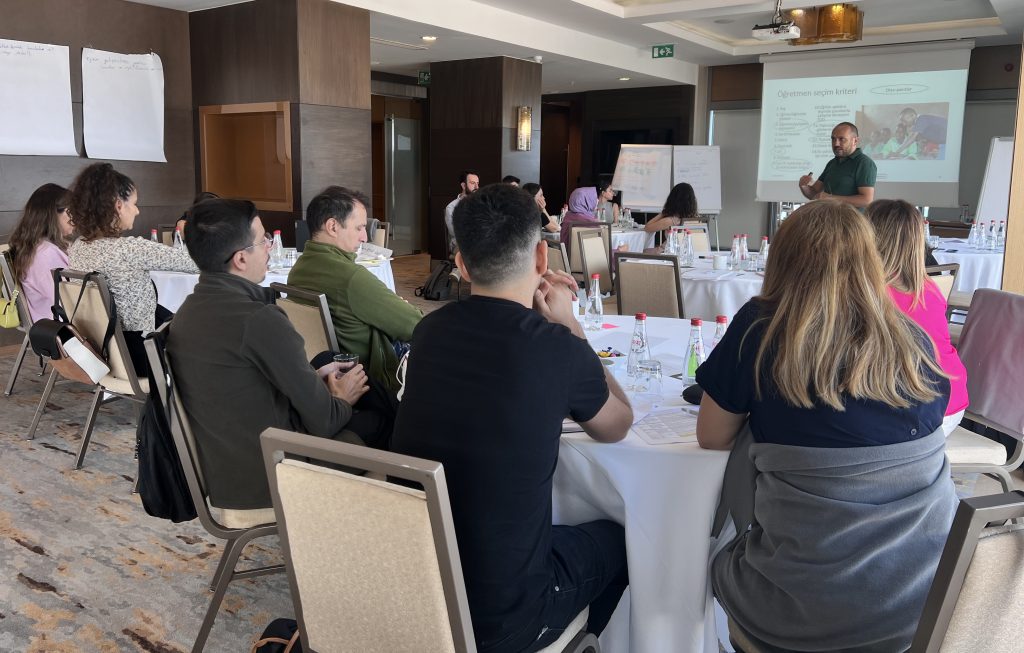
The participants received comprehensive guidance and practical tools to enable them to support students effectively during crises, which covered such topics as the implementation of emergency education frameworks, effective response strategies, and the adaptation of educational practices to crises. The training also focused on cross-sectoral collaboration and capacity strengthening. The facilitators underlined the importance of more interventions across the country and systemic changes for sustainable and long-lasting effects.
Ayse Kapukaya, Education Officer at UNICEF, says:
– It would be beneficial to replicate this training in different regions, especially in Ankara, due to its proximity to ministries and the presence of numerous NGOs with headquarters and bases there, which could amplify the training’s impact.
Eyup Ural, Programme Coordinator at Alliance of International Doctors in Istanbul, highlights:
– Considerations for improvement include enhancing the education system, implementing more system-strengthening programmes, and advocating for curriculum and teaching methodology changes. There is significant change underway, and many people are optimistic about the future of SEL [Social Emotional Learning].
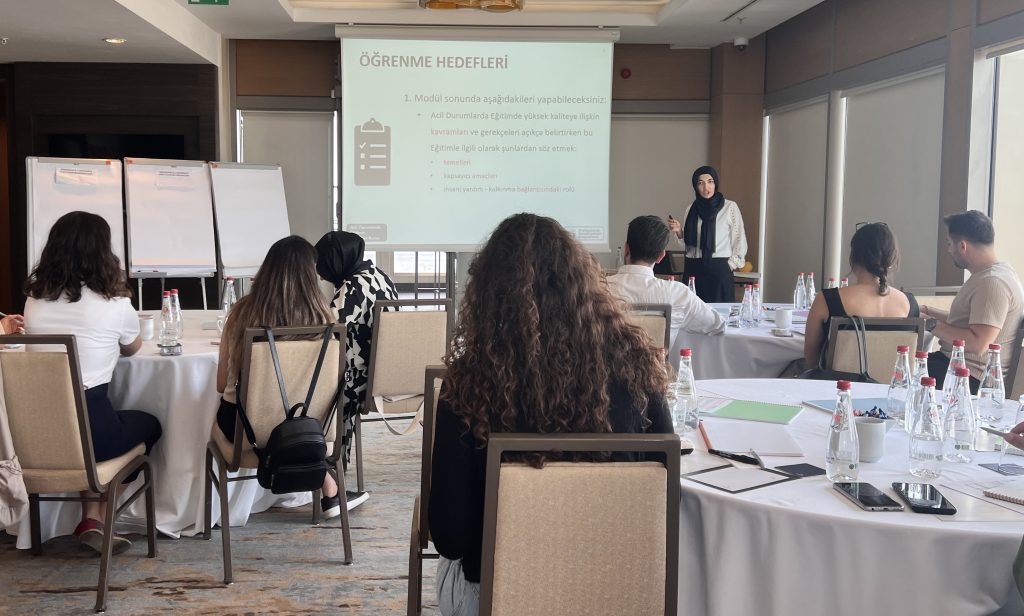
Rafka Daoud, the HLA’s EiE Professional development Programme Regional Manager in Middle East & North Africa, sums up:
– The recent influx of families displaced by the earthquake into Istanbul has significantly increased the demand for emergency education support in the city. To effectively meet the educational needs of these displaced communities, it’s crucial to provide fundamental training for the staff of local NGOs in Istanbul. Building their capacity through this training will enable these organisations to deliver timely and appropriate support.
The training aligns with the requests and priorities of the UNICEF cluster coordinator, ensuring that efforts are coordinated and responsive to the needs on the ground. By equipping local staff with the necessary skills and knowledge, the training contributes to sustainable and effective educational support for displaced populations, benefiting the community in the long run.
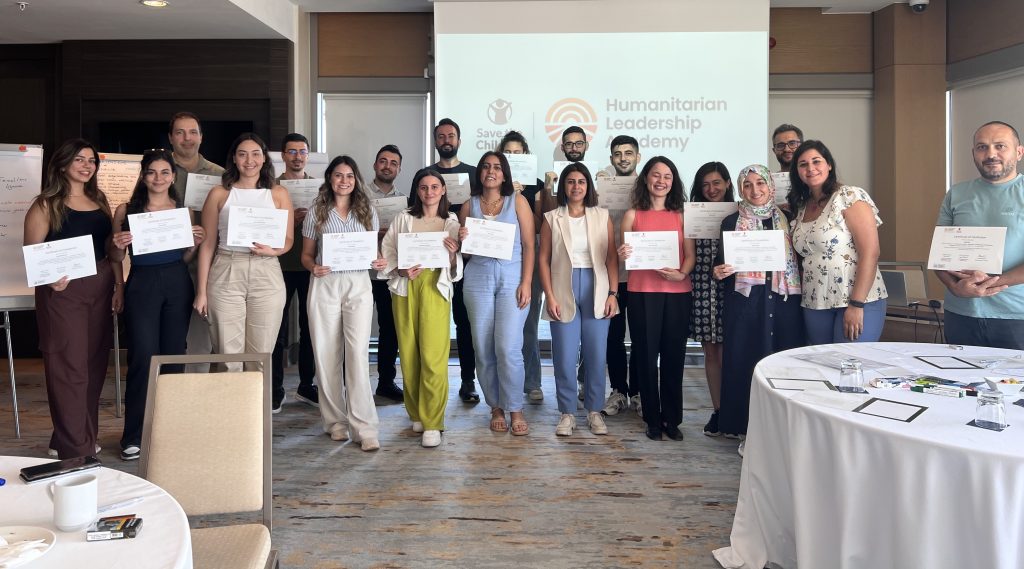
Find out more about Education in Emergencies (EiE)

